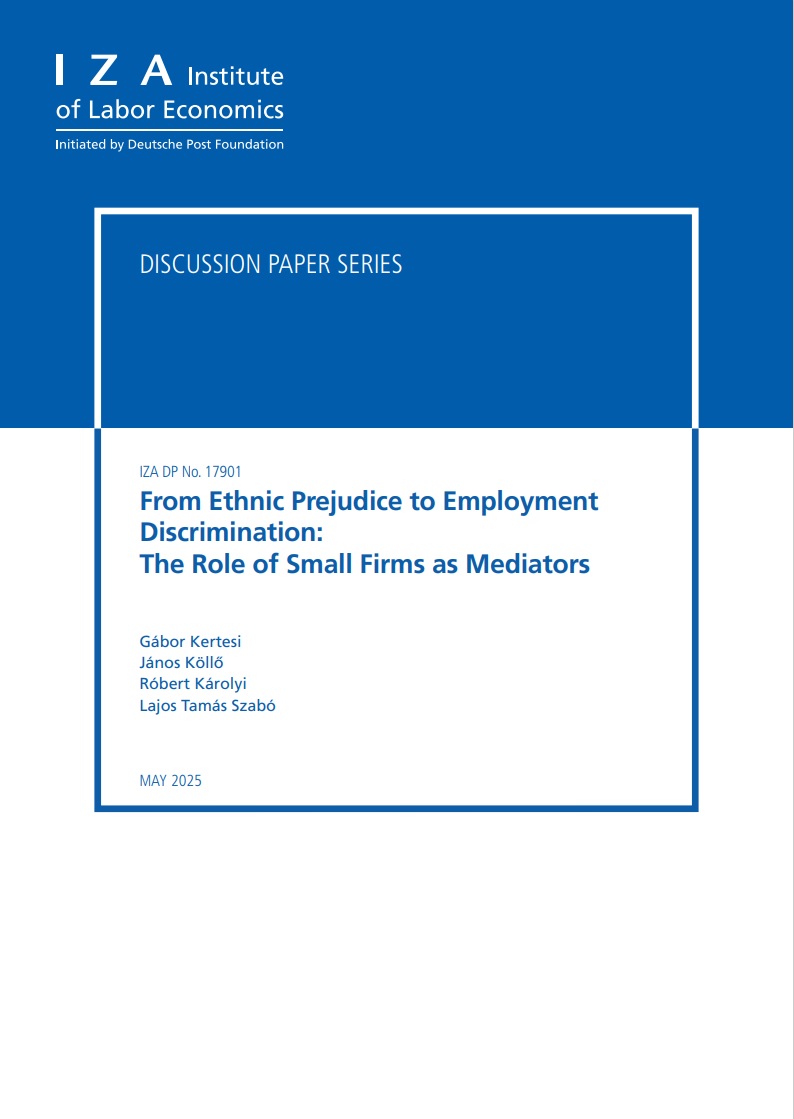More than one-third of the European Union’s population reported having a chronic health condition (CHC), and their proportion in the labour market is expected to continue to grow in the future. Using a linked employer-employee administrative database that combines detailed health care data and wage information, the study identifies workers with chronic conditions in Hungary and analyses their labour market prospects, with a particular focus on the role of companies in this regard.
Men with chronic illnesses are 7 percentage points less likely to be employed than their healthy counterparts, while women are 14 percentage points less likely. Among those in employment, the wage disadvantage associated with chronic health conditions is 5.8% for men and 13.9% for women. Differences in company-specific wage premiums account for 12% of this disadvantage for men and 23% for women.
Event-study models, which also take into account fixed employee effects, show that the onset of chronic illness is associated with a permanent wage reduction: 4% for men and 1.5% for women. Of this, 0.2–0.5 percentage points can be explained by the fact that those affected move to companies with lower wage levels, while the remainder is likely to be due to missed promotions and wage increases.
The research also examines the importance of company ownership, particularly the role of foreign ownership, which can be considered a good proxy for technological advancement. According to the results, 20% of the wage gap can be explained by this company characteristic, of which 60–70% is due to the fact that people with chronic illnesses are less likely to work for foreign-owned companies, while the remainder reflects the fact that these workers benefit less from the higher wage premiums offered by foreign companies. These results suggest that the wage decline between the ages of 40 and 60 would be 10-20% lower if there were no wage disadvantage due to chronic illness, approximately 20% of which is attributable to the presence of foreign-owned companies.
The full article and study can be read at the following link (in Hungarian): Telex: Keményen bünteti a munkaerőpiac azokat, akik valamilyen krónikus betegséggel élnek












